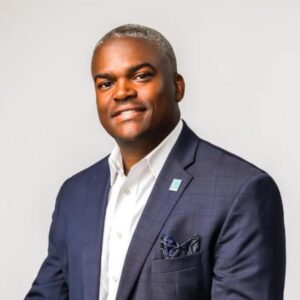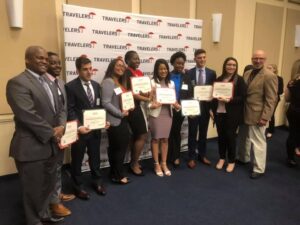
With a campus in downtown Hartford, Capital Community College offers more than 60 degrees and certificates. Chief Executive Officer Dr. G. Duncan Harris spoke with MetroHartford Alliance Content Manager Nan Price about how the college responded to the pandemic and it continues to provide opportunities for people to upskill and find meaningful careers.
NAN PRICE: The pandemic has impacted every industry with closures and transitions to online engagements. How has Capital Community College responded and evolved during this time?
G. DUNCAN HARRIS: At no point in time was the significance of our institution more glaringly apparent than during the pandemic. Capital has the largest nursing program in the state with about 300 nursing majors, with faculty and students working directly in local hospitals.
In the early pandemic, there was a lack of personal protective equipment (PPE). Some hospitals reached out to us and we cleared out all our labs and donated all our PPE to hospitals the area.
Our students and faculty were on the front lines. Our faculty and students rolled up their sleeves and worked triple shifts. We received special permission to keep our programs running because the state knew it needed more nurses, certified nursing assistants, paramedics, respiratory technologists, and medical assistants. We were proud to step up and help out during that time.
NAN: How else did Capital pivot to meet the community’s needs?
DUNCAN: Hartford has a large population working in the restaurant and tourism industries. Many were displaced due to closures, so folks were coming to us for short-term programs to help them get back to work.
NAN: Capital is also leveraging collaborations to create workforce opportunities. Tell us about some of those.
DUNCAN: Capital stood up several new programs during the pandemic. We created an 11-week Eversource lineworker certificate program. We also used some federal funding to launch a manufacturing program where students complete an introduction program for manufacturing, spend five weeks at A.I. Prince Technical School in Hartford, and then take classes on our campus. We’ve had three cohorts and all the students have come out with multiple job offers.
 Capital also participates in the Travelers EDGE® Program, which is in its 15th year. The program provides college students with financial, academic, professional development, and mentoring support and prepares them for a career at Travelers or the insurance and financial services industry. Some of our students who were a part of the first cohort are in the C-suite at Travelers, but they got their start at Capital working on their associate’s degree.
Capital also participates in the Travelers EDGE® Program, which is in its 15th year. The program provides college students with financial, academic, professional development, and mentoring support and prepares them for a career at Travelers or the insurance and financial services industry. Some of our students who were a part of the first cohort are in the C-suite at Travelers, but they got their start at Capital working on their associate’s degree.
We recently built another cool program with Asplundh, which does highway tree removal. They needed more arborists and reached out to us, so we created the Asplundh Utility Arborist Trainee Program, which provides students with the basic understanding of the skills needed to start in this career. The Capital Community College Foundation ponied up funding, which eliminates some of the barriers that cause people to think they can’t go to college.
Capital has also been working with the Governor’s Office Of Workforce Strategy to develop some statewide programs. And we’re collaborating with Amazon and Google.
We’ve been more deliberate about creating a workforce pipeline by identifying short-term training opportunities. A typical associates degree takes two years, but a lot of life can happen in that amount of time. So, we’ve been working on creating shorter programs, like the 11-week Eversource program. At the end of those 11 weeks, students will be set up to have a good job working for an international company.
And, we’re working with employers very differently now. In the past, we would’ve taken our chances that we were teaching what employers needed. Now we’re creating that process together where employers are helping inform the skills a successful employee needs versus us retrofitting our programming and teaching what we think students need to know—then they go to the company and need to be retrained.
We like to think of Capital as an important part of the region’s economic engine. So many people wonder where they can get the prerequisite skills and training needed to enter the workforce, whether it’s healthcare, technology, insurance, or manufacturing. We have students finding jobs at places like Infosys, The Hartford, and Aetna. When those companies need talent, it may come from some of Connecticut’s residential four-year institutions, but a lot of talent also comes from our public two-year institutions.
NAN: For those who are more interested in working for themselves, how does Capital encourage entrepreneurship?
DUNCAN: There’s an entrepreneurship option within the management program offered at Capital. A lot of our students aspire to own small businesses. They may have a knack for it, but they need the practical training in things like accounting and finance and marketing.
NAN: What do you feel is most important that people know about Capital Community College?
DUNCAN: It’s a place designed specifically for our community and centered on the idea that you can come to community college to identify ways to achieve your career goals. And it’s a great starting place. You can start with us and end up anywhere.
People often don’t know where to go to get started. Once they come through our doors, our job is to meet our students where they are and help them get to where they want to be.
